
Category: Russia
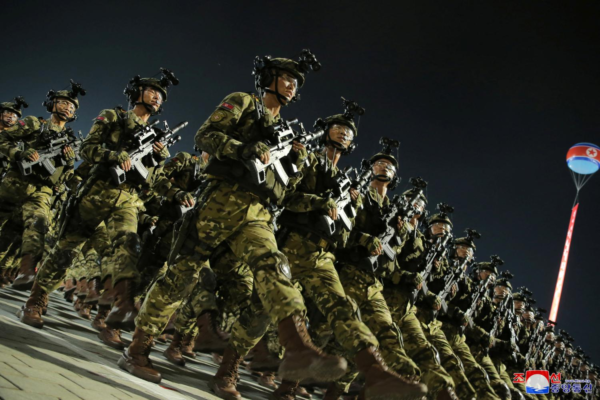
U.S. Sets June Deadline for Ukraine–Russia Peace Deal as Energy Attacks Intensify
Washington has given Kyiv and Moscow until June to reach a peace deal, even as Russia escalates attacks on Ukraine’s energy infrastructure and nuclear facilities.

Is the Nobel Peace Prize Really About Peace?
For decades, the Nobel Peace Prize has celebrated champions of peace—but an investigation into winners from 1996 to 2025 reveals a pattern of controversy, political alignment, and actions sometimes contrary to peace, raising questions about the true purpose of this prestigious award.
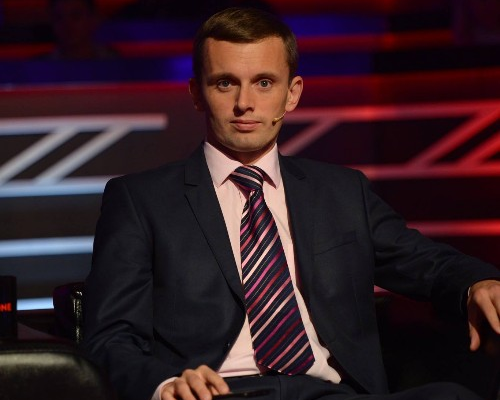
Ruslan Bortnik: Ukraine’s Fight for Real Independence and Honest Governance (Interview)
Leading Ukrainian analyst Ruslan Bortnik detailed interview on war, corruption, true sovereignty, and why Ukraine must stay independent from both Russia and the West.

Rare Earth Metals: The Critical Elements Powering the Modern World
Rare earth metals power EVs, wind turbines & defense tech. Discover what they are, where they’re mined, China’s dominance, and the escalating geopolitical struggle.
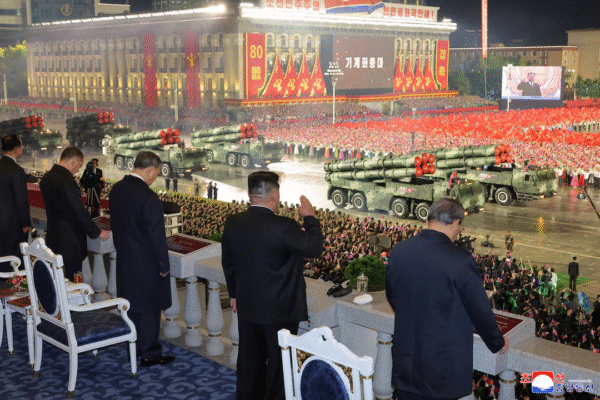
North Korea shows off new intercontinental missile at military parade
Nuclear-armed North Korea displayed its most advanced Hwasong-20 intercontinental ballistic missile, described by the North Korean government as the country’s “strongest nuclear strategic weapon system,” state media said on Saturday.
North Korean soldiers who fought with Russian troops against Ukraine celebrated
North Korean soldiers who fought alongside Russian troops against Ukraine marched through Kim Il Sung Square on Friday, carrying the flags of Russia and North Korea as part of the Workers’ Party 80th Anniversary celebrations. Video: North Korea soldiers who fought alongside Russia celebrated at Workers’ Party anniversary The soldiers marched to the Russian patriotic song “To Serve Russia,” a rare and symbolic display of solidarity between Pyongyang and Moscow. According to estimates, around 2,000 North Korean soldiers were killed while supporting Russia’s war in Ukraine. And reports say that under a new deployment plan, North Korea recently sent another 1,000 combat engineers to Russia. Although the event marked the 80th anniversary of the founding of the Workers’ Party, it was also a display of military cooperation between the two countries. Dmitry Medvedev, Deputy Chairman of the Security Council of the Russian Federation, attended the celebrations in Pyongyang. North Korean leader Kim Jong Un speaks with Deputy Chairman of the Russian Security Council and leader of the United Russia political party Dmitry Medvedev as he visits the country for an event marking the 80th anniversary of the founding of the ruling Workers’ Party of Korea (WPK), in Pyongyang, North Korea, October 9, 2025, in this pictured released October 10, 2025 by North Korea’s official Korean Central News Agency.He thanked North Korea for what he called its “steadfast support” for Russia’s ongoing military operation in Ukraine. At Pyongyang’s May Day stadium Russian singer Shaman performed a tribute to the soldiers who fought in Kursk. Kim Jong Un and the audience rose from their seats to honor the soldiers. The parade highlighted the partnership between Moscow and Pyongyang. As the song “To Serve Russia” played across the square, the message was clear: an old alliance is being reshaped for today. We are : Investigative Journalism Reportika Investigative Reports Daily Reports Interviews Surveys Reportika
Kim open to talks if U.S. drops denuclearization demand
North Korean leader Kim Jong Un said he is open to talks with the United States, but only if Washington drops its demand that Pyongyang abandon its nuclear weapons program. Kim made the remarks during a recent session of the Supreme People’s Assembly, state-run Korean Central Television (KCTV) reported Monday. He said he has “good memories” of President Trump from their previous summits and would consider talking if the United States changes its stance. The statement marked Kim’s first public response to Trump’s recent overtures and underscored the gulf between the two sides. Dropping the U.S. goal of North Korean denuclearization would represent a major shift in American policy and a significant concession to Pyongyang. Trump has continued to tout his personal rapport with Kim, but the White House told Reuters in July that the ultimate objective of U.S. policy remains the complete denuclearization of North Korea. The two leaders surprised the world with an impromptu meeting at the Demilitarized Zone in 2019, when Trump briefly stepped across the border into North Korea to shake Kim’s hand — a symbolic moment that underscored their unconventional diplomacy. Kim also stressed he has no intention of resuming dialogue with South Korea, a key U.S. ally that helped arrange the earlier Trump-Kim summits during Trump’s first term. Tensions on the peninsula have deepened as Kim accelerates weapons development and strengthens ties with Russia amid the war in Ukraine. In a separate interview with the BBC, South Korean President Lee Jae Myung said he would support a deal in which North Korea freezes production of its nuclear weapons rather than fully dismantling them, if such an agreement could be reached between Trump and Kim. We are : Investigative Journalism Reportika Investigative Reports Daily Reports Interviews Surveys Reportika
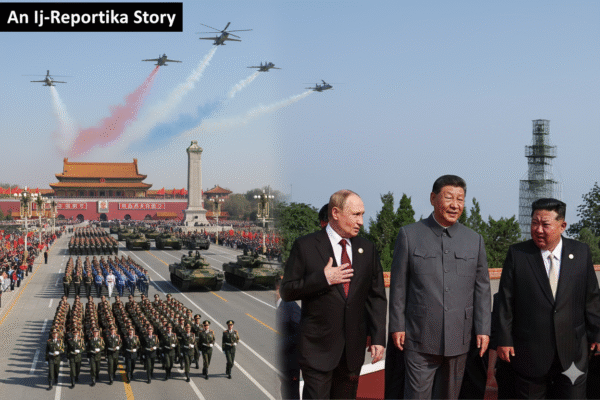
Kim, Putin, Xi share world stage at China’s military parade
Enormous intercontinental ballistic missiles, new underwater drones, laser weapons and other military hardware paraded across Beijing’s Tiananmen Square for 90 minutes on Wednesday — a commemoration of 80 years since the Japanese surrender that ended World War II and a showcase of modern Chinese military might.
North Korea’s Kim Jong Un arrives in Beijing for military parade
North Korean leader Kim Jong Un arrived in Beijing on Tuesday, ahead of a massive Chinese military parade on Wednesday that will celebrate 80 years since the Japanese defeat that ended World War II. Kim and his daughter Kim Ju Ae arrived at around 4 p.m. on a green train bedecked with North Korean flags. They were met at the Beijing train station by Cai Qui, China’s fifth-highest ranked official, and foreign minister Wang Yi. It’s the North Korean leader’s second reported trip abroad in six years, and his first trip to China since 2019. The event at Tiananmen Square is expected to include troops marching in formation, aircraft flyovers, displays of military equipment and some 50,000 spectators. But many eyes will be on the VIP audience, where Kim is expected to rub shoulders with Chinese President Xi Jinping and Russian leader Vladimir Putin, among others. While Kim has engaged bilaterally with Xi and Putin in recent months, this will be their first gathering together. Analysts say they’ll be looking for signs of strengthening ties among the three countries. Earlier on Tuesday, Xi met with Putin at the Great Hall of the People and then again at his residence. That followed a summit on Monday in which Xi and Putin met with leaders from more than 20 non-Western countries. Among them was Narendra Modi, the prime minister of India, who talked with both Xi and Putin. Includes reporting from Agence France-Presse and Reuters. We are : Investigative Journalism Reportika Investigative Reports Daily Reports Interviews Surveys Reportika
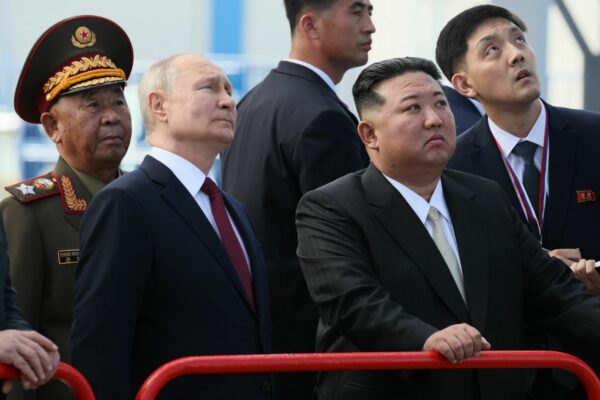
North Korea’s Kim Jong Un to attend military parade in China
Chinese President Xi Jinping extended Kim’s invitation to the event, which marks 80 years since Japan’s surrender in World War II, North Korean state media reported Thursday. Kim will be among 26 foreign leaders who are expected to attend, including Russian President Vladimir Putin.

